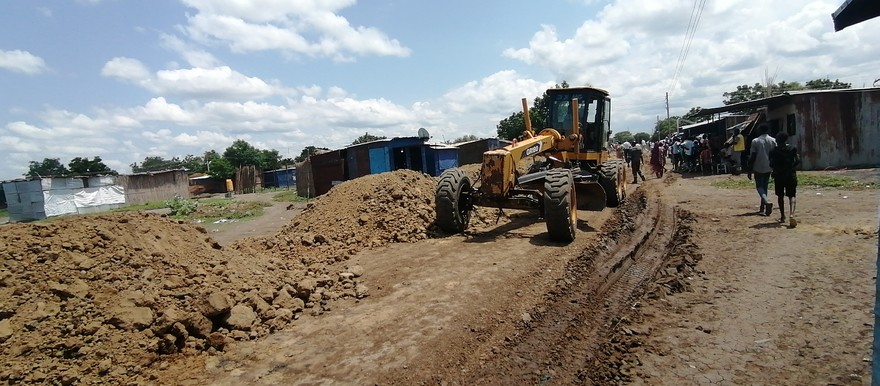The European Union Ambassador to South Sudan, Christian Bader, is in Warrap and Western Bahr el Ghazal states to visit beneficiaries of feeder road projects.
The funding from the European Union, totaling 44 million euros, enabled the construction of over 170 kilometers of feeder roads in Warrap, Lakes, Western, and Northern Bahr El Ghazal states. The United Nations Office for Project Services (UNOPS) implemented the projects.
“The EU is committed to help in making sure feeder roads connect to main roads. This will improve security and allow goods and services to reach all parts of the country,” Ambassador Bader said.
According to the European Union, the roads constructed between 2016 and 2020, link farmers to markets and have significantly reduced the travel time between farms, homes, markets, schools, and other social amenities. The roads have also enabled traders to reach the hinterland and buy farm produce directly from the farmers thereby providing better prices to the farmers by eliminating the agents. Local traders use the completed roads to deliver farm inputs closer to the farmers.
Victor Chol Bol, the minister for roads and bridges in Warrap state, said: “I want to thank UNOPS for the work they have done in our states, especially roads and bridges, and the work is continuing and we work side by side”
A press statement from the EU said that children can now access schools at ease and communities can access better health care in other localities.
“This project directly responds to sustainable development goals 9 (Industry, innovation, and infrastructure), eight (decent work and economic growth), three (good life and wellbeing) amongst other goals,” it read.
Speaking about the project, the UNOPS Country Representative to South Sudan, Peter Mutoredzanwa said: “It is part of UNOPS DNA to work alongside communities and ensure that communities and institutions in South Sudan have the right capacity to maintain the infrastructure built with support from our development partners. This is a sustainable approach which moves communities from being recipients of development aid but to take ownership and enable them to maintain infrastructure by transferring skills and knowledge.”
South Sudan is one of the most food-insecure countries in the world and it is estimated that half of the population lives below the poverty line. The country suffers from a critical lack of infrastructure, which prevents farmers from getting their produce to the markets.
In December 2014, the European Union and UNOPS teamed up to construct and rehabilitate over 170 kilometers of feeder roads and construct four markets in Warrap, Lakes, Northern and Western Bahr-el-Ghazal states.




